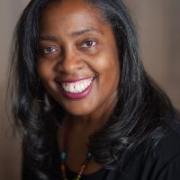Every year at this time we celebrate mothers and fathers for the important role they play in supporting our families. And yet as a society we don’t do enough to truly help mothers who face unique challenges on the road to birthing and raising children.
Between 700 and 1200 mothers die during childbirth in the US every year, the highest maternal mortality rate of all developed nations, and roughly 50,000 more mothers face near-fatal complications. That is: An estimated 50,000 mothers come close to death. These figures are outrageous, and they can be prevented.
Because race and income are closely linked to health, it is poor women and women of color who are most impacted by negative birth outcomes. Black women, for example, are four times more likely to die during childbirth than white women.
Unfortunately, nothing about the subpar maternal and infant health of poor and women of color and their babies is new. The bright side: there’s increasing awareness of our country’s woeful record on maternal and infant health. And our base of birth equity warriors is growing.
Community health workers—including community-based doulas—are at the nerve center of this movement for birth equity. Community health workers build close relationships with their clients because they, too, are mothers, understand their community, and are often motivated to support other mothers because of their own experiences. But where they should be respected and supported for the pivotal and potentially life saving role they play with mothers and their children, they are instead dealing with inhospitable work environments and limited resources.
This is why my organization, HealthConnect One, created the Birth Equity Leadership Academy (BELA). We recently held our first regional meeting in Tunica, Mississippi, where 25 community health workers gathered to share lessons and raise up strong models for supporting moms in their communities …despite the constant challenge of not having the bandwidth or resources to reach all the moms who need them.
Our vision is to see every baby, mother, and family thrive. We work towards equity in maternal and child health, because we believe healthy births are the cornerstone of healthy communities.
The Birth Equity Leadership Academy (BELA) focuses on the people behind community-driven support systems for mothers and their young children, because we believe that all viable solutions have to start with local solutions and engagement.
Studies have shown that mothers who receive support from doulas are less likely to have preterm babies and cesarean deliveries. A 2016 study published in the journal “Birth: Issues in Perinatal Care” found that 20.4 percent of women in Minnesota with doulas had cesarean deliveries as compared to 34.2 percent of women who were not supported by doulas. Similarly 4.7 percent of women in the former category had preterm births as compared to 6.3 percent of women without doulas.
But not everyone can pay for doula services – and states like Mississippi and Alabama, whose infant mortality, maternal mortality, and preterm birth rates are the highest in the country, are also the poorest. Which means doulas and other community health workers face an uphill battle, and struggle to address the challenges facing mothers and children in their communities.
“We’ve been doing this for free for a long time, but we’ve got families to support, too. If you want better outcomes, you have to show us an avenue where we can make it,” says Teffanie Green, a community-based doula with the Northeast Mississippi Birthing Project.
For us to make headway in our fight to protect the lives and wellbeing of mothers and babies, we must support opportunities that empower mothers during, before, and after childbirth. That should begin with ensuring that doulas access the compensation, resources, and respect needed to do their jobs well.
Roslyn, a participant at the BELA meeting, reminded us that “as long as there have been women, there have been women to support them.” We must continue to support the women who have always been there, as lifelines, ensuring mothers and their children can survive and thrive: community health workers. They are the heart of our movement for birth equity.
Jeretha McKinley is Program Director at HealthConnect One, the national leader in advancing respectful, community-based, peer-to-peer support for pregnancy, birth, breastfeeding, and early parenting.


The views and opinions expressed in this post are those of the author(s) and do not necessarily reflect those of MomsRising.org.
MomsRising.org strongly encourages our readers to post comments in response to blog posts. We value diversity of opinions and perspectives. Our goals for this space are to be educational, thought-provoking, and respectful. So we actively moderate comments and we reserve the right to edit or remove comments that undermine these goals. Thanks!